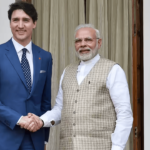Nobel Prize in Economics 2024 Sveriges Riksbank Prize in Economic Sciences in Memory of Alfre Nobel has been awarded to esteem economists Daron Acemoglu,
Simon Johnson, and James A. Robinson for their groundbreaking studies on the formation and impact of political institutions on economic prosperity. The announcement was made by the Royal Swedish Academy of Sciences,
highlighting the importance of their research in understanding the dynamics of global inequality and institutional development.
Understanding the Model of Political Institutions
The Nobel Prize committee emphasize that the laureates have develope a comprehensive model that elucidates the circumstances under which political institutions are form and change. This model consists of three critical components:
- Resource Allocation and Decision-Making Power: The first component focuses on the conflict over resource distribution and who wields decision-making power within society. It examines the tension between elites and the masses, illustrating how these dynamics shape political institutions.
- Mobilization of the Masses: The second aspect highlights the potential for the masses to exert power by mobilizing and threatening the ruling elite. This notion suggests that power is not solely define the ability to make decisions but also the capacity to challenge the existing power structures.
- Commitment Problems: The third component addresses the commitment problem faced by elites. It indicates that the only viable option for elites may be to relinquish some decision-making power to the populace, illustrating the complexity of political power dynamics.
The Nobel committee pointed out that societies lacking a strong rule of law and institutions that exploit the population are unlikely to achieve growth or positive change. This insight underscores the importance of their research in shedding light on the mechanisms that drive economic disparity.

Pioneering Approaches to Global Inequality
Jakob Svensson, director and professor of economics at Stockholm University’s Institute for International Economic Studies and Nobel Prize in Economics 2024,
praised the laureates for pioneering new empirical and theoretical approaches
that have significantly advanced the understanding of global inequality. The question of why economic gaps between affluent and impoverished nations
persist remains one of the most pressing issues in social sciences today.
The Sveriges Riksbank Prize in Economic Sciences, often referre to as the Bank of Sweden Prize,
was establish the central bank as a memorial to Alfred Nobel. This year’s award continues the legacy of honoring those who contribute significantly to the field of economics,
with the first recipients being Ragnar Frisch and Jan Tinbergen in 1969.
Read More: Understanding India-Canada Diplomatic Tensions: Key Events and Implications- Click Here
Conclusion
Nobel Prize in Economics 2024, The recognition of Daron Acemoglu, Simon Johnson, and James A. Robinson reflects not only their individual contributions to the field of economics but also the critical need
to understand the interplay between political institutions and economic outcomes. Their research provides valuable insights into the mechanisms that drive prosperity and inequality,
offering a pathway for policymakers and scholars alike to address some of the world’s most pressing economic challenges.







